Questions (FAQ)
Our team is trained to use a variety of industry-standard technology, such as spore traps, laser particle counters, and more. One of our unique and state-of-the-art resources, however, is the InstaScope, which uses biofluorescent technology to sample and identify airborne particles/contaminants in real-time.
It is not necessary to determine what type of mold you may have growing in your home or other building,” according to the Centers for Disease Control (CDC). “All molds should be treated the same with respect to potential health risks and removal.”
If you would like to learn more about this topic, we provide a more detailed explanation in this blog post.
Mold is prone to grow in areas of moisture. If your property has suffered from water damage, moisture intrusion, HVAC malfunctions, and more, you are more likely to experience mold growth.
If you cannot see any visible mold in your space, other indications of mold include a musty or mildewy smell, new or exacerbated allergies, heightened humidity, and more.
The relationship between one’s allergies and their indoor environment is usually unique to the individual, though it may be dependent on the season. For example, the majority of Americans experience more sensitive allergies during the autumn, as ragweed and pollen are in full bloom.
And as these outdoor allergy triggers follow you indoors or become trapped in your HVAC or other soft surfaces, they may continue to exacerbate your symptoms until properly handled. Others may be experiencing mold allergies, in which case we recommend you schedule an expert mold investigation.
Investing in a healthy building check-up following a change in your home or business property is always wise, as many of the tools and resources used in remodeling or renovation processes are apt to release volatile organic compounds or let in other airborne contaminants.
A properly functioning and utilized HVAC system will enhance your indoor air quality, as adequate ventilation will keep your air ducts clean and regularly changing your air filter will help to catch more airborne pollutants.
However, if your HVAC is not sized properly, does not receive regular maintenance, or if you close your property’s vents, your indoor air quality may be negatively affected.
Volatile organic compounds (VOCs) are hazardous chemicals that become airborne when household items (such as paint, air fresheners, cleaning products, and more) break down over time. If your property has strange odors or if you believe you may have a high volume of VOCs, we recommend you schedule a VOC investigation.
There are a variety of ways to optimize your indoor air quality. First and foremost, we recommend maintaining your HVAC system, as this will be your primary resource for ventilation, moisture/humidity control, and capturing airborne particles.
However, if you have more concerns about your home’s indoor air quality, we encourage you to schedule a healthy building check-up with our team.
We are proud to offer same-day results following a mold investigation! Other investigations, such as with bacteria or VOC testing, may take approximately 72 hours for lab results to come back.
No, we only send reports to our client.


